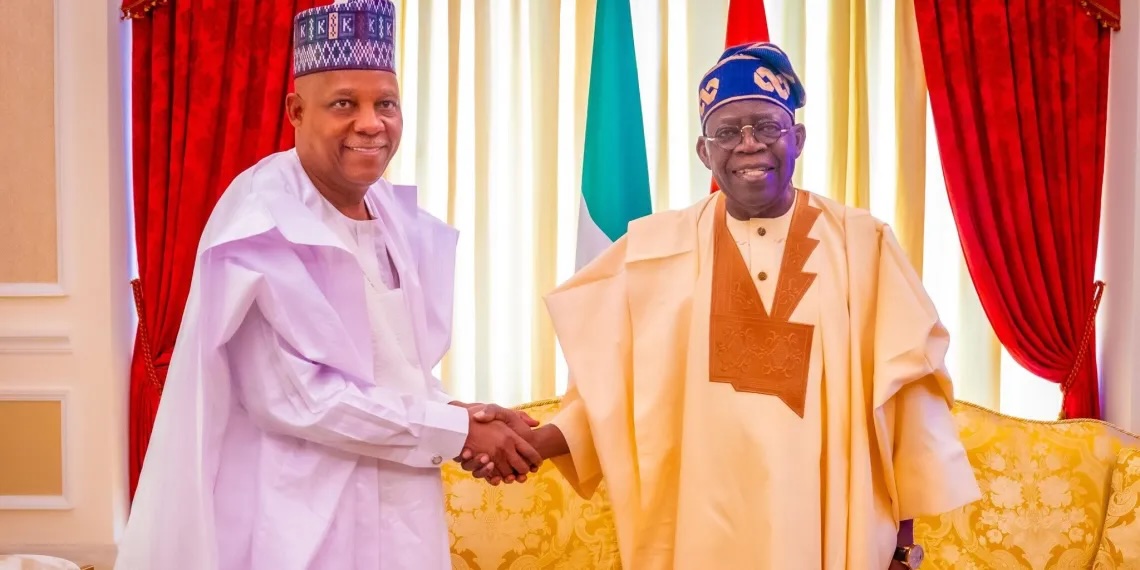The oil and gas sector had gone through a bit of turmoil for close to three weeks. Queues for Liquefied Petroleum Gas (LPG), surfaced around end of September/early October, when marketers had little or no gas to sell. The few that had the product decided to sell at extortionate prices. What used to be N1,100/1,200 per kilogram, climbed fast to N1, 700, N2000 and more, across different locations.
For city dwellers, there were no quality alternatives to LPG for domestic cooking. For years, many had put aside Kerosene stoves when the product became too costly after the product was deregulated. Besides, kerosene stove had become obsolete for some homes. Charcoal could be an alternative, but that has a downside of heavy smoke and is harmful to the environment. Firewood is a no-go area for many reasons. Citizens have substantially migrated to cleaner cooking habits. So, many families were thus frustrated by the hike in price and non-availability of cooking gas.
By weekend, the situation had not eased and the price refused to drop reasonably, despite announcement by Dangote Refinery (DR), that it had slashed LPG price to N760 per kilogram. Stakeholders have proffered a number of theories to explain what went wrong. Some claimed the dispute between DR and oil workers’ unions (NUPENG/PENGASSAN), was responsible for the disruption in the market.
The Association of Liquefied Petroleum Gas Marketers (NALPGAM), said last week, that the scarcity was caused by the industrial crisis between PENGASSAN and DR. Their president, Oladapo Olatunbosun assured that despite the disruption, there had been no official price increase, apart from usual opportunistic market behaviour. On the other hand, he revealed that Dangote Refinery had to shut down production to undertake a temporary maintenance.
According to him, that led trucks to now spend 14 days at Dangote yard before they got products.Before then, the DR sent out around 50 trucks per day to service the market.
As the downstream transitions from importation to production, it will take time to perfect the processes. Industrial disputes are part and parcel of any vibrant society and they are to be addressed. But if just three to four days of strike action could translate to the levels of disruption and losses reported, certain disputes must be mitigated. There was a 16 per cent drop in national oil output (over 200,000 barrels per day production deferred); 30 per cent marketed gas losses (1.7 billion standard cubic feet of gas per day) and 20 per cent power supply shortfall (over 1,200 megawatts of power). The situation demands that stakeholders and regulators must be watchful.
While the face-off between workers and DR lasted, the unions did not enjoy popular support of the people. Many commentators were of the opinion that the unions have lost relevance and have become self-serving. Even the apex workers’ body, the Nigeria Labour Congress, no longer enjoys the camaraderie it once had with the people.
Nigerians were disappointed when labour leaders failed to negotiate appropriate living wage for workers in July 2024. Before it capitulated at the negotiation table with government, Labour had sensitised the public on what amounted to living wage, giving high living costs occasioned by removal of fuel subsidy. Labour argued with data that N494,000 was their baseline, taking into account feeding, housing, transportation and other costs.
Nigerians were, however, disappointed that Labour could not go beyond N70,000, at a time national lawmakers take home between N15 and N21 million in salary and allowances monthly. Lawmakers also earn between N1billion and N2 billion for constituency projects. Nigerians deserve better when it comes to negotiating improved living conditions with leaders. As their political representatives have failed them repeatedly, the people rely on Labour to fight for them. Labour leaders in recent years have lost capacity to hold government to account. Labour is no longer painstaking and rigorous in the demand for equity; Labour has lost vibrancy and stoicism. That was the perception before the Labour versus Dangote brawl unfolded. Without investing time to study the merits and demerits of the case, commentators had made up their mind that Labour was meddlesome and up to no good.
It is understandable. Nigerians have endured years of torture in the hands of state-mismanaged oil companies and were not going to tolerate Labour’s interference in the affairs of a private refinery that has brought them rest of mind. The argument is that government had wasted $18 billion in attempts to fix non-functional refineries, at the time DR invested around same amount to build a functional refinery. The experience in the last one and a half years has been one where supply of petroleum products is stable, though still costly. People have been conditioned to now pay more without having to waste hours at filling stations, in what used to be a grinding circle that had no end.They’re not going to side with a Labour that offered them nothing.
When it was time to get DR cracking, bureaucratic bottlenecks surfaced with regulators acting funny. Nigerians had to express solidarity with DR at that trial period when the NNPCL and cabals became uncomfortable that a new player had emerged with alternatives. Even the quality of DR products was disclaimed by the regulator, with a claim that the refinery had not attained completion and production stage. Citizens saw the affront as a ploy to perpetuate importation and fictitious payments that enriched private pockets.
Hence, the preponderant opinion this time was that the unionists were wrong and should stay away from DR. If they did not protest years of ruins in government owned refineries, and were comfortable to earn salaries while not delivering products, they have lost their right to hold others to account, when they failed to do same. Some even accused the leaders of operating like cabals, surviving on hefty check-off dues.
The authority and integrity of Labour have whittled since the return of democracy. In the days of the Military, both NUPENG and PENGASSAN became champions of the democratic struggles.They frustrated Gen. Sani Abacha’s bid to savour stolen power. But gradually, the interplay between Labour and politics has taken a toll on Labour. It became bad luck for Labour that its affiliate party, the Labour Party (LP), participated in the 2023 presidential elections and did surprisingly well. Since Peter Obi subscribed to LP, persons who used to be labour lovers and activists now see Labour as public enemy. If Labour challenges government policies that impoverish workers, the interpretation will be that Labour wants to bring President Tinubu’s government down.
In developed societies, Labour Parties belong to workers and they do not need to apologise for that. Until recently, when INEC summoned courage to delist the pretenders who held LP to ransom, the party had taken a beaten and was left in death throes. The workers’ body is now regionalised and has lost capacity to rally a national call. Politicians will frustrate it.
Aliko Dangote is a global player with investments across Africa, where he is bound to encounter workers’ unions. Dangote cement is reported to operate in 11 African countries, with installed capacity for 55 million tonnes per annum. Some of these countries operate very stringent labour laws. The story was told of a Nigerian investor who went to South Africa and was misled to export the anti-labour habits many are known for here. They chased him out. But here, anything goes. That must not be encouraged.
Africa’s richest man is a civilised investor. He should not be seen to have disagreements with workers at home, which doesn’t translate to good PR for him and the country. Whatever is needed to operate in harmony with workers will be in the interest of all. There’s no household that does not feel the investments of Dangote, from the billions paid as taxes to government and the jobs created across multiple value chains. Indeed, Dangote is a national asset, but he cannot operate alone. He needs happy and loyal workers to translate his dreams into reality.
Anyone encouraging him to undermine the unions doesn’t mean well for the country and Africa. Let charity begin at home.
Labour is terribly weakened and might be unable to take on the task of defending citizens come 2026, when obnoxious taxes are rolled out. Labour must be encouraged to keep fighting for the masses.
The man who drives the tax policy of government, Mr Taiwo Oyedele, mentioned gleefully that Agberos (commercial drivers and their conductors) will pay taxes. According to him, since they have assets, they are deemed to be buoyant enough to pay. Since the government has bothered to enumerate them and identify them with social security numbers, and they may not have bank accounts, the taxes will be forcefully taken from them via their mobile phones, each time they recharge.
The government is also going to tax Ashawos (prostitutes). Maybe government needs to first begin by enumerating them. The point is that a government that has not provided social security is looking for taxes where it has not invested a dime. How do you tax a prostitute you have not provided accommodation for? You haven’t provided her with health insurance to keep her well and safe to produce taxes. You haven’t bothered about the wear and tear of their assets, but you are more interested in their taxes. Sounds wicked, to just import strange doctrines from countries that have long settled their citizens’ basic needs: housing, health, transportation, education and others.
How do you assume that the danfo driver’s asset is buoyant enough to sustain him, two wives and seven children, tucked away in the most miserable corner of Ajegunle? Do you have health insurance for them; how about their pension and gratuities? You are also interested in remote workers you did not provide jobs for. Cruel.
In the absence of an articulate and fearless Labour to defend lowly citizens such as Agberos and Ashawos, this government will get away with murder in the name of generating taxes. Labour has failed, but don’t let Labour die!
Quote






